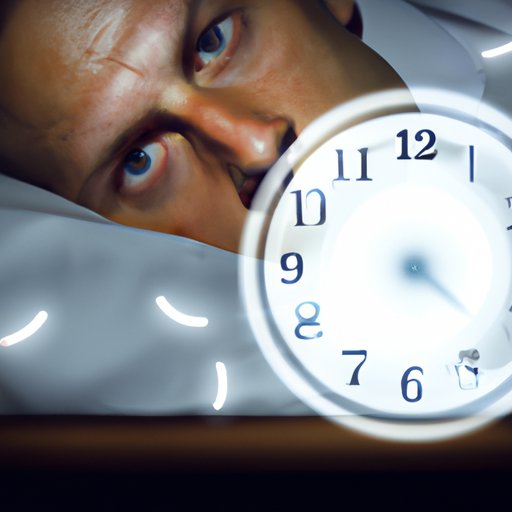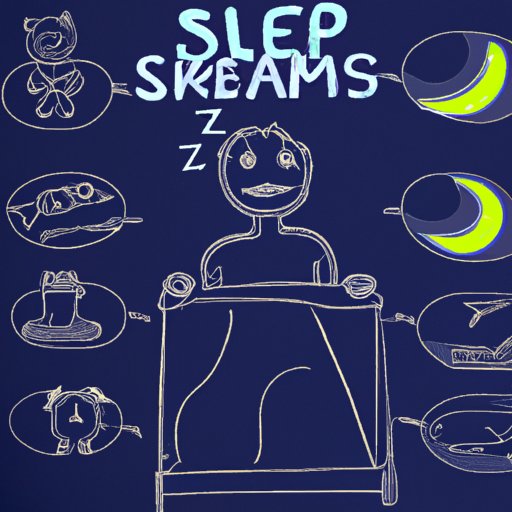Introduction
Getting a good night’s sleep is essential for physical and mental wellbeing, yet many of us struggle to get the rest we need. To ensure quality sleep, it’s important to practice good “sleep hygiene”—a set of habits and behaviors designed to promote healthy sleep patterns. In this article, we’ll explore the science behind sleep, from establishing good sleep hygiene to understanding the causes and treatments of sleep disorders.
How to Make Sure You’re Getting Enough Sleep
Sleep hygiene begins with making sure you’re getting enough sleep. The National Sleep Foundation recommends that adults aged 18-64 get 7-9 hours of sleep per night. Establishing a consistent bedtime routine can help your body know when it’s time to wind down for the night. It should involve relaxing activities like taking a warm bath or reading a book. Making sure your bedroom is dark, quiet, and cool can also promote better sleep. Finally, cutting back on stimulants like caffeine and alcohol in the evening can help your body transition into sleep more easily.

How Lack of Sleep Affects Your Health
Lack of sleep has serious consequences for both physical and mental health. Studies have linked poor sleep with an increased risk of obesity, heart disease, stroke, diabetes, and other chronic illnesses. It can also lead to weakened immunity and slower wound healing. Mental effects include difficulty concentrating, memory problems, and decreased productivity. According to the Centers for Disease Control and Prevention, 1 in 3 Americans don’t get enough sleep, so it’s important to be aware of the risks associated with inadequate rest.
How to Combat Insomnia with Natural Remedies
If you’re having trouble sleeping, there are natural remedies you can try before turning to prescription medications. Herbal supplements like valerian root and chamomile can help induce relaxation and reduce stress before bed. Aromatherapy using essential oils such as lavender, frankincense, and bergamot can create a calming atmosphere. Exercise during the day can also help you fall asleep faster. Relaxation techniques such as meditation, progressive muscle relaxation, and guided imagery can also help lull you into a peaceful sleep.

How to Get the Most Out of Napping
Napping can provide a much-needed boost of energy during the day, but it’s important not to overdo it. Timing your nap for the early afternoon is best—any later and it could interfere with nighttime sleep. The ideal length for a nap is 20 minutes; any longer and you may wake up feeling groggy. If you’re having trouble sleeping at night, avoid napping altogether.

Exploring the Science Behind Dreams
Dreams have fascinated humans since ancient times. While scientists still don’t fully understand why we dream, they have identified several theories. One popular theory is that dreams are a way of processing emotions and experiences from the day. Another suggests that dreams serve as a form of problem solving, allowing the brain to make connections between seemingly unrelated ideas. Finally, some believe that dreams help us form memories by consolidating information we’ve learned throughout the day.
Sleep Disorders: Causes and Treatment Options
Sleep disorders like insomnia, narcolepsy, and sleep apnea can wreak havoc on the body’s natural sleep cycle. Diagnostic tests like polysomnography and actigraphy can help doctors identify underlying issues. Treatment plans vary depending on the disorder, but generally include lifestyle changes, medications, and cognitive behavioral therapy. For those suffering from severe sleep disturbances, a visit to a sleep specialist may be necessary.
Conclusion
Getting a good night’s sleep is essential for physical and mental health, but many of us struggle to get the rest we need. Practicing good sleep hygiene—from establishing a bedtime routine to avoiding stimulants before bed—is key to ensuring quality sleep. If you’re having trouble sleeping, there are natural remedies you can try before turning to prescription medications. Finally, if you’re experiencing serious sleep disturbances, consulting a sleep specialist can help identify the cause and develop an effective treatment plan.
(Note: Is this article not meeting your expectations? Do you have knowledge or insights to share? Unlock new opportunities and expand your reach by joining our authors team. Click Registration to join us and share your expertise with our readers.)
